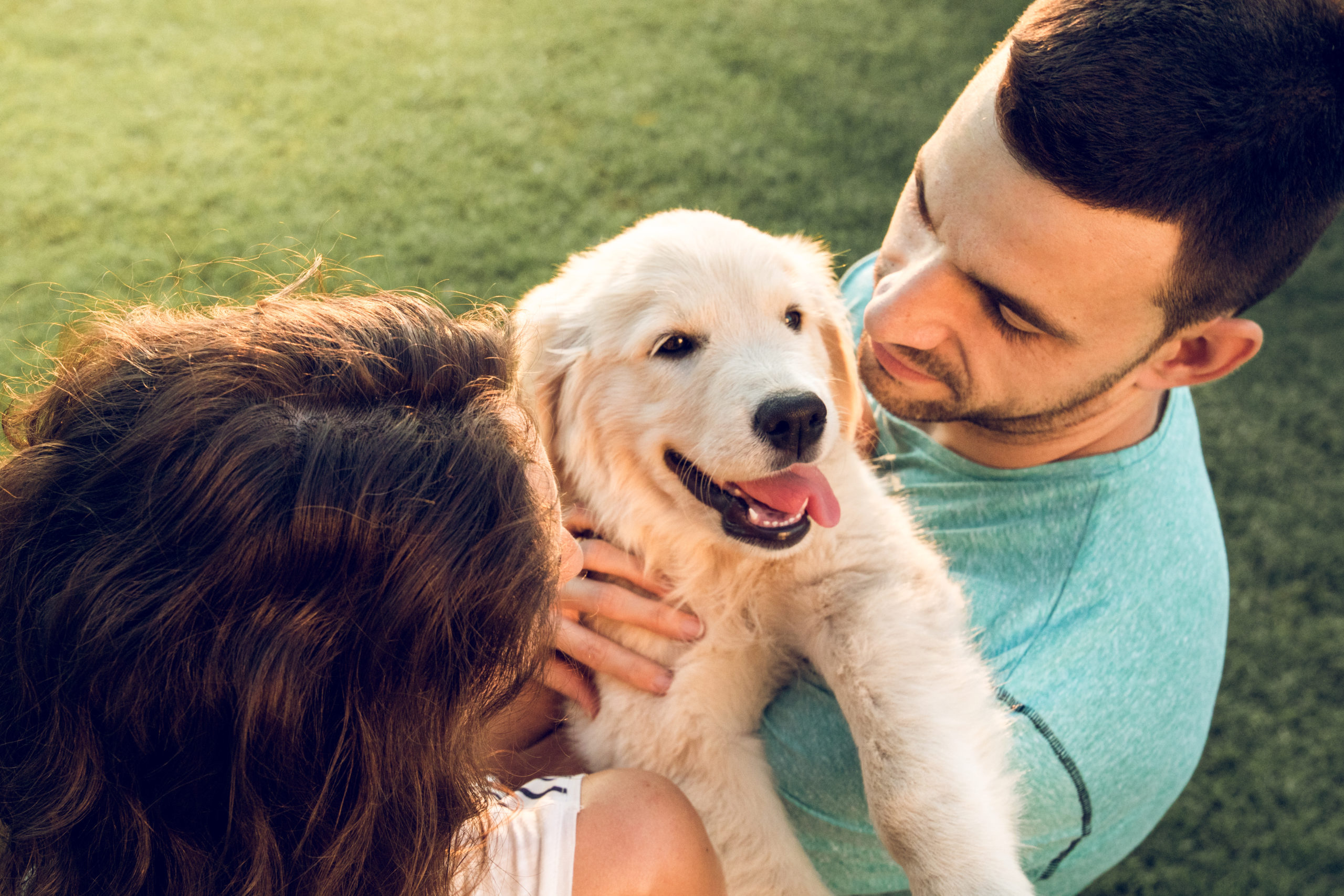We are a nation of animal lovers with 44% of households owning a pet of some sort – be it of the furry, feathery or scaley variety! Dogs are the most popular pet of choice with 26% of UK adults owning a beloved pooch and 24% of adults opting to own a cat.
Unsurprisingly, this means that when couples separate, pets can add to the complexities as often couples will disagree on who gets to keep their beloved animals.
Breaking Up & Splitting Assets
Whether you are married or not, when parting ways there are often assets to split or share. The biggest asset is usually a property if you own property jointly, next comes the division of other assets such as savings and furniture. Most often the fairest way is to split everything down the middle (if owned equally) or sell up and move on. But this may depend on whether one party is intending to remain in the property or not.
In the eyes of the law pets are viewed as personal property in the same way a car, electronic or item of furniture would be. There is no legal requirement to consider the welfare of a pet when divorcing or formally separating.
Essentially if one person can prove financial ownership of the animal – i.e. they purchased the dog, or pay for all the upkeep, then it is very likely that they will retain ownership of the animal.
If you disagree, then some other things to consider may include:
- Who owned the pet first if it wasn’t brought jointly?
- Who pays for pet insurance and vet bills?
- Who takes care of feeding the animal on a day-to-day basis?
- Who looks after the personal care, e.g. walking and grooming?
- Who has or will have a larger outdoor space or house suitable for the pet?
- Who works appropriate hours to take care of a pet?
- Who travels the most?
- Who is more financially stable to take responsibility of the pet?
- If you have children, how would they be affected by living with or without the family pet?
- Who has a closer bond or relationship with the pet?
Is Shared ‘Custody’ An Option?
It is not uncommon for separated couples to share a dog between them. It is obviously much less practical for a cat or other pets. Some couples draw up a rota or share time with their dog between two separate houses.
This can work in situations where the couple remain amicable, but it does require some flexibility and understanding.
Before entering into a shared schedule with a dog it is important to think about the practicalities. Who will be responsible for insurance, vet bills, appointments, grooming, paying for medication, treatments and food? Or will all costs be split fairly? Also, it is worth thinking about what should happen if either of your circumstances change. If someone moves away, has children or no longer wants to carry on with the agreement then this could create problems.
There will often be times where one person cannot have the pet or would like the pet for longer and this should be agreed and resolved between yourselves. You will not be able to seek advice from a lawyer or the courts to enforce any private arrangements you have made concerning a pet, like you would with arrangements for children.
Consider your pet and how well they would cope with moving between different houses. Are they an easily adaptable animal or would upheaval upset them? Do they travel easily and how far apart do you live? Pets should feel settled and comfortable at both households and should therefore have everything they need at both properties, such as beds, toys, bowls, leads etc.

Handle With Sensitivity & Practicality
Emotions often run high when going through a divorce or separation and it can be easy to get caught up in the minor details of a relationship breakdown which delays you being able to move on and find a way forward.
Pets are often considered part of the family and both parties should be sensitive to the other’s emotions when discussing who will keep them.
It should also be looked at practically, ideally being placed with the person who purchased the pet, or if purchased jointly, then living with the person who can provide the best care for them in terms of time, finances, care and space.
When Can You Get Legal Help?
As mentioned, a pet is considered a possession so should be a matter resolved between the couple and not a lawyer. It is highly unlikely that a judge would consider animals in divorce proceedings.
However, some family lawyers in the UK are seeing an increase in couples making provisions for pets via Pre-Nuptial Agreements and Post-Nuptial Agreements. These agreements would set out what should happen to pets (and other assets including property, savings etc) should the relationship break down.
This acts as a ‘fire escape’ plan so that both parties know where they stand should their marriage not last and it can give peace of mind.
Contact Us
If you need advice on other areas of your separation or are considering divorce then please contact us to see if we can help you with the arrangements for your finances, children and property.
Call us on 01256 844888, email enquiries@lambbrooks.com or speak to our online chat assistant to get the ball rolling today.
The contents of this article are for the purposes of general awareness only. They do not purport to constitute legal or professional advice. The law may have changed since this article was published. Readers should not act on the basis of the information included and should take appropriate professional advice upon their own particular circumstances.
